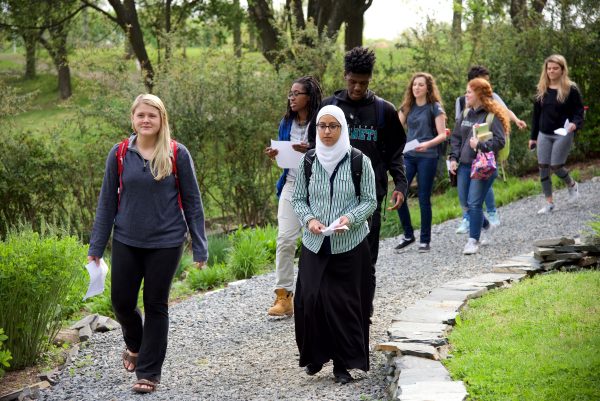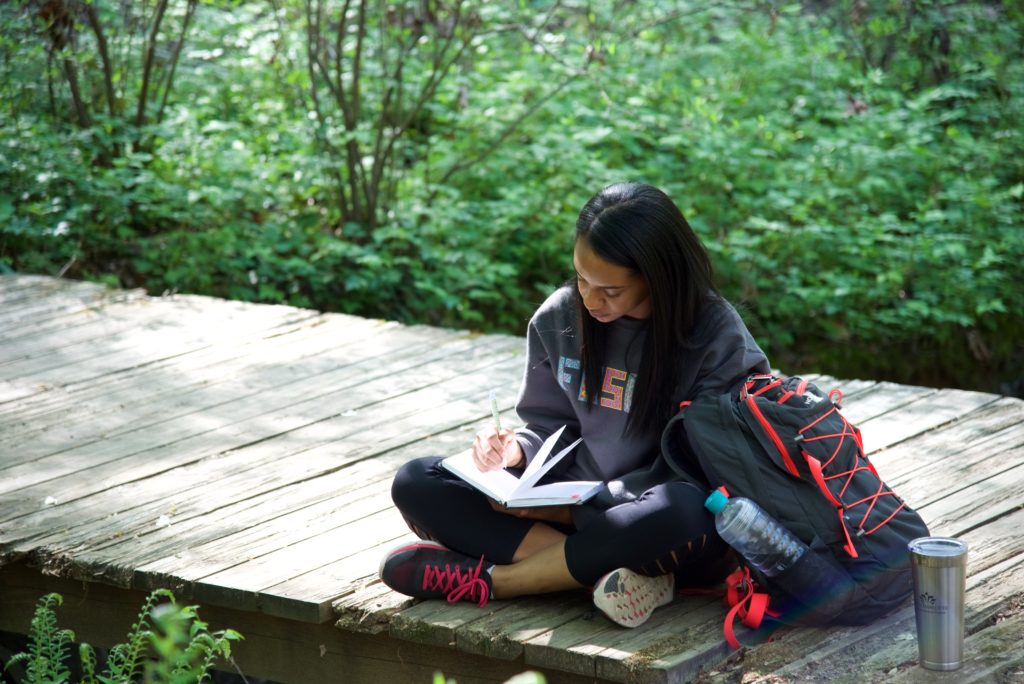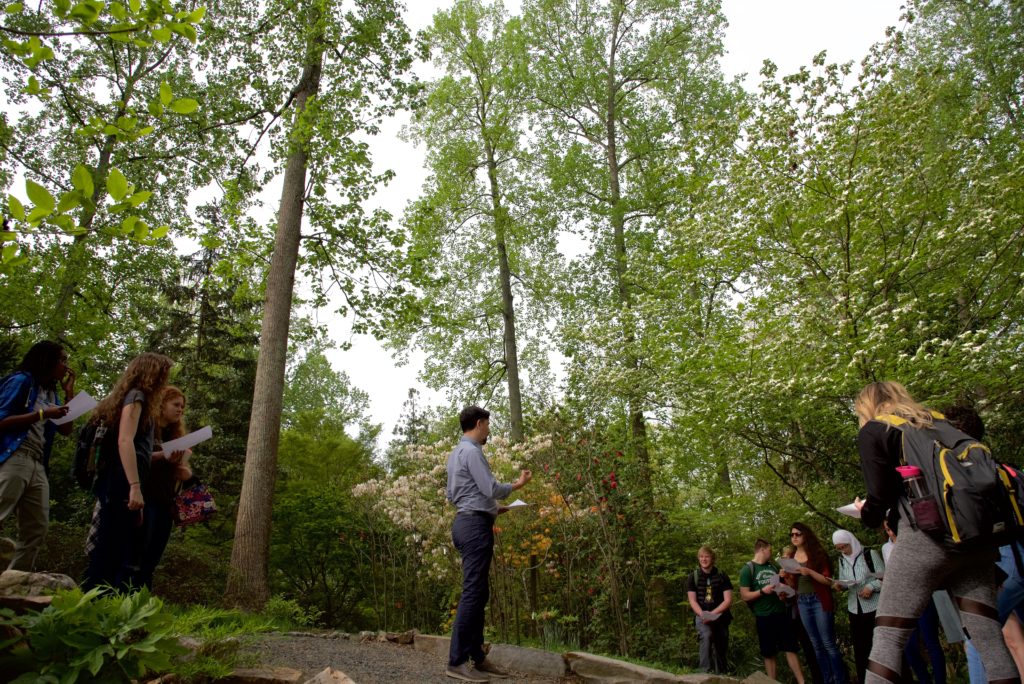UNC Charlotte Botanical Gardens Cultivate Creative Class Setting

Tree-lined trails spider through the glen. An emerald canopy blocks the cloudy sky from view. As visitors walk through the fresh blooms of the pink and white azaleas, a subtle fragrance lingers. Birds sing to one another as water murmurs in moss-lined rocky streams, and a warm breeze rustles the leaves. The hushed whispers of UNC Charlotte students add another note to the song in the UNC Charlotte Botanical Gardens.
On this day, the students are scholars in Allison Hutchcraft’s Intermediate Poetry class. Hutchcraft, an English lecturer and lover of the Botanical Gardens, has taken her class outside to embrace nature and to gain inspiration from the natural world.
“In my Intermediate Poetry class last spring,” she says, “we read two collections of poetry that looked to gardening and the natural world – Catalog of Unabashed Gratitude by Ross Gay and Lucky Fish by Aimee Nezhukumatathil – and then visited the Gardens to explore how we, too, can integrate the natural world into our creative work.”
Students adore this, as judged by their expressions and discussions. They sit on abandoned benches, tree trunks and bridges and soak in the natural atmosphere around them.
 Hutchcraft is among the faculty who turn to the alluring Botanical Gardens. Dave Brodeur, who teaches graphic design in the College of Arts + Architecture; Jamie Strickland of Geography & Earth Sciences; Aaron Kampe of Biological Sciences; Susanne Gomoluch of Languages and Culture Studies; and others are sharing time in the Botanical Gardens with their students, studying subjects ranging from graphic design to ecological interactions.
Hutchcraft is among the faculty who turn to the alluring Botanical Gardens. Dave Brodeur, who teaches graphic design in the College of Arts + Architecture; Jamie Strickland of Geography & Earth Sciences; Aaron Kampe of Biological Sciences; Susanne Gomoluch of Languages and Culture Studies; and others are sharing time in the Botanical Gardens with their students, studying subjects ranging from graphic design to ecological interactions.
Assistant professor of English Matthew Rowney incorporates the Botanical Gardens bounty into his teaching by comparing the setting to those found in Wordsworth’s The Prelude. With his class, he takes a historical approach by contrasting the landscapes of 18th century China and Britain with these modern gardens. He uses the Botanical Gardens as an example of the differences, considering the versions of nature and landscape aesthetics found in the UNC Charlotte setting and drawn from the pages of the famous literary work.
“I am hoping to complicate the simple idea of enjoying nature by thinking about these historical developments that have shaped what the natural world actually is,” Rowney says. “I think we should try to be critical about what it means to look at nature. How can that be problematic, especially when that nature has been set up to look a certain way and it’s not something just simply found? What are some of the complications that arise when thinking about what it means to have an experience with the natural world?”
 These questions perhaps have his students thinking more deeply and with more complexity than they would in a traditional classroom setting, as if the open natural space creates openness in their minds.
These questions perhaps have his students thinking more deeply and with more complexity than they would in a traditional classroom setting, as if the open natural space creates openness in their minds.
“The Gardens help bring to life some of the aspects that the poem is dealing with and the class is dealing with more broadly,” Rowney says of this semester’s work. “I think that often we get so used to dealing with texts in the same way, that we forget that we’re actually talking about the real world out there. Going to the Gardens gives us opportunity to provide another way of thinking about the subject matter and to give a broader perspective on some of the issues involved in the course.”
Words: Heather Benson, Student Communications Assistant | Images: Lynn Roberson, College Communications Director | Pictured (from top) Matthew Rowney (r) with class; student in Allison Hutchcraft’s class reflects through her writing; Rowney’s class discusses Wordsworth’s The Prelude.